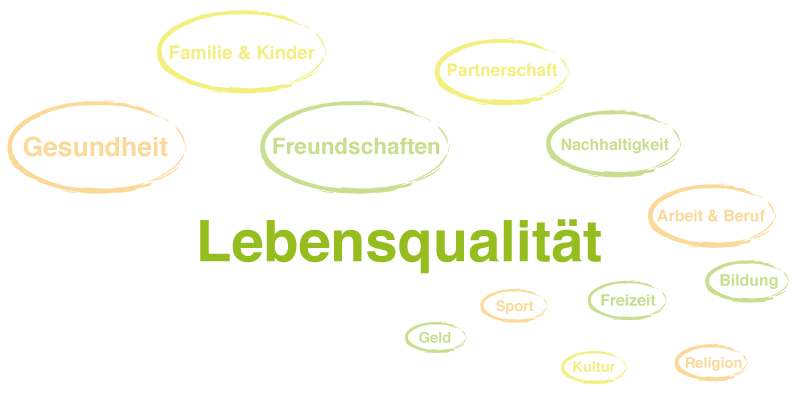Social affairs and sustainability
Fair distribution and equality of opportunities as a basis for a good quality of life
The social dimension of sustainability is most difficult to comprehend, and therefore it is quite often underexposed in the discussion about a sustainable future. The reasons for this are, amongst others, the interrelation between distinct (scientific) disciplines and the social dimension, and the difficulties to quantify the social dimension. Therefore, up to now there is no clear concept of social sustainability, and broad acceptance is lacking as well.
Dignified life, distribution and equality of opportunities
Social sustainability aims at a dignified life, i.e. on the distribution of social burdens, on role allocation, on distribution of work / countermeasures against unemployment, and equality of opportunities. Its focus is directed on dignified existence, which meets material and immaterial basic needs. The topic of “work“ plays a crucial role: paid labor facilitates material participation and secures subsistence on account of the resulting income, but it also bears essential effects upon social and cultural participation [Reference: Study by Littig/Griessler 2004].
Social sustainability describes the maintenance of human health, securing social stability, and safeguarding the development and organization ability of society [Reference: Report of Committee of Enquiry (pdf)].
Quality of life as social sustainability
An approach towards measuring and assessing social sustainability is the concept of quality of life, which is connected to skepticism towards the model of growth, according to which increased prosperity is said to lead to increased quality of life. Studies show that increasing per capita income of a society does not directly correlate to the percentage of “extremely happy people”. Other studies show that mainly just distribution, not material prosperity of single persons leads to increased quality of life of all humans. [Comparisons to this topic: Wilkinson/Pickett (2009): Equality is happiness. Why just societies are better for everyone.]

The Human Development Index (HDI)
The indicators of social sustainability are only little developed, because they are difficult to measure. Internationally, for instance the Human Development Index (HDI) serves as a measuring tool, which considers real purchasing power per inhabitant, life expectancy, and education (measured according to rate of alphabetization and training). It shows, however, only average values, and says little about the distribution within a country.
Social indicators in Austria
Mainly the chapter of „life quality in Austria” deals with the dimension of social sustainability in the Austrian Strategy for Sustainable Development. The indicators mentioned in this chapter consider the topics of social exclusion (unemployment, poverty), social inequality, education, inequality of opportunities between men and women, and health in summary.
Enterprises and social sustainability
Concerning enterprises and CSR, social sustainability is mostly related to work conditions of employees. In this context, work conditions, active health promotion, integration of socially disadvantaged groups, or the management of staff reduction, equality of opportunities, participation, and working hour models are considered, but also aspects of human rights are considered all the way of the entire value creation chain.
Social sustainability and Social Production
The often underexposed social dimension of sustainability plays a crucial role in Social Production on various levels. Social Production strengthens social occupational enterprises in their task of integrating disadvantaged persons into the employment market and their participation in working life, respectively through procuration and support of suitable orders. Social Production intends to assist disadvantaged persons in performing appreciated and sensible activities. Thereby, it indirectly contributes towards social balance and increased equality of opportunities in our society.
Social Production facilitates economic enterprises to actively assume social responsibility at the interface between social and economic sustainability, and to consciously cooperate with social enterprises.
Soziale Nachhaltigkeit: 15.Nov.2012 Teilen
Tweet
![]()










